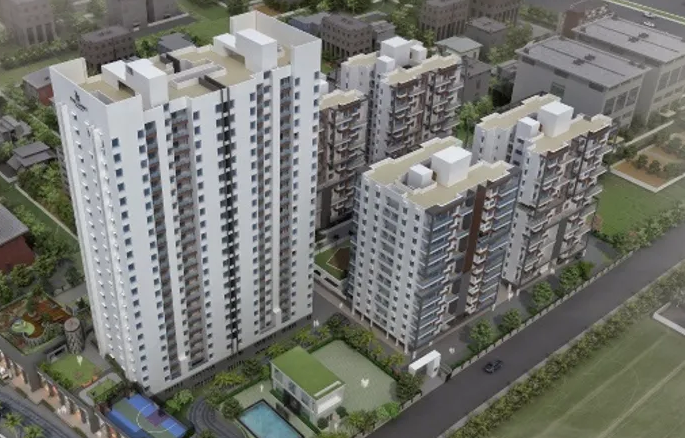In recent years, the Indian real estate market has gained significant attention from Non-Resident Indians (NRIs) looking to invest in properties back home. The combination of favorable policies, attractive property prices, and a booming economy has made India an appealing destination for real estate investments. In this blog, we will explore eight key trends that are attracting NRIs to the Indian real estate market.
1. Favorable Government Policies
The Indian government has introduced various policies aimed at promoting real estate investment from NRIs, such as:
– Relaxation of FDI norms: The government has eased Foreign Direct Investment (FDI) regulations, allowing NRIs to invest in the real estate sector with fewer restrictions.
– RERA (Real Estate Regulation and Development Act): This act enhances transparency and accountability in the real estate sector, ensuring that buyers’ interests are protected.
– Tax benefits: NRIs can benefit from certain tax exemptions and lower capital gains tax when investing in Indian real estate.
These supportive policies have created a conducive environment for NRIs to invest confidently in the Indian property market.
2. Strong Economic Growth
India’s robust economic growth is a significant factor driving NRI interest in real estate. Consider the following points:
– Rising GDP: India has one of the fastest-growing economies globally, leading to increased disposable income and consumer spending.
– Urbanization: Rapid urbanization is creating new opportunities in real estate, as more people move to cities for better job prospects and living conditions.
– Increased infrastructure development: Projects like smart cities and improved transportation networks are enhancing connectivity and making certain regions more attractive for investment.
The overall economic growth provides a strong foundation for property appreciation, making it an appealing prospect for NRIs.
3. Diverse Investment Opportunities
The Indian real estate market offers a wide range of investment options that cater to different preferences and budgets:
– Residential properties: NRIs can invest in apartments, villas, and luxury homes in urban centers or emerging areas.
– Commercial real estate: With the rise of startups and co-working spaces, investing in commercial properties has become increasingly attractive.
– Rental properties: The demand for rental housing is high in metropolitan areas, providing NRIs with opportunities for passive income.
This diversity allows NRIs to choose investment avenues that align with their financial goals and risk appetites.
4. Growing Demand for Luxury Properties
The demand for luxury properties in India is on the rise, driven by several factors:
– Wealth accumulation: India has a growing number of high-net-worth individuals (HNWIs) who seek premium living spaces that offer modern amenities and exclusivity.
– International lifestyle: Luxury developments often feature global standards of living, appealing to NRIs looking for high-quality residences.
– Investment potential: Luxury properties tend to appreciate faster than average homes, making them an attractive investment choice for NRIs.
The luxury real estate segment is thriving, offering NRIs a chance to invest in premium properties that promise excellent returns.
5. Interest in Tier-2 and Tier-3 Cities
While metropolitan areas like Mumbai and Delhi have traditionally attracted NRI investments, there is a noticeable shift toward Tier-2 and Tier-3 cities:
– Affordable pricing: Properties in these cities are generally more affordable than those in major metros, making them accessible for NRIs looking for investment opportunities.
– Growth potential: With increasing urbanization and infrastructure development, these cities are poised for growth, leading to higher property values in the future.
– Quality of life: Tier-2 and Tier-3 cities often offer a better quality of life, with less congestion, pollution, and a more relaxed lifestyle.
Investing in these emerging markets can yield significant returns as they develop further.
6. Technology-Driven Real Estate Solutions
Technology has transformed the Indian real estate sector, making it easier for NRIs to invest from abroad:
– Online property portals: Websites and apps provide comprehensive listings, allowing NRIs to explore properties, compare prices, and read reviews without being physically present.
– Virtual tours: Many developers now offer virtual tours of properties, enabling NRIs to experience homes without traveling to India.
– Blockchain and smart contracts: Technology enhances transparency and efficiency in transactions, reassuring NRIs of their investment’s security.
The integration of technology simplifies the investment process, making it more accessible for NRIs.
7. Increased Focus on Sustainability
Sustainable and eco-friendly properties are becoming increasingly popular among NRIs, reflecting a global trend toward environmentally conscious living:
– Green buildings: Many developers are incorporating sustainable practices, such as energy-efficient designs, rainwater harvesting, and waste management systems, into their projects.
– Lifestyle preferences: NRIs are more likely to invest in properties that align with their values, including sustainability and community living.
– Government initiatives: Policies promoting green building certifications encourage developers to adopt eco-friendly practices, enhancing the appeal of such properties.
Investing in sustainable real estate not only benefits the environment but also aligns with the lifestyle preferences of many NRIs.
8. Post-Pandemic Shifts in Preferences
The COVID-19 pandemic has altered the way people view real estate, leading to new investment trends:
– Preference for larger homes: As remote work becomes more common, NRIs are seeking larger properties that accommodate home offices and recreational spaces.
– Desire for open spaces: Properties with gardens, balconies, or access to green spaces are increasingly sought after, reflecting a shift in lifestyle preferences.
– Location flexibility: The pandemic has encouraged NRIs to consider properties in non-traditional locations, such as vacation homes or properties in hill stations.
These post-pandemic shifts create unique opportunities for NRIs to invest in properties that cater to evolving lifestyles.
Conclusion
The Indian real estate market presents numerous opportunities for NRIs, driven by favorable government policies, strong economic growth, and diverse investment options. The rising demand for luxury properties, interest in Tier-2 cities, and a focus on sustainability further enhance the appeal of investing in Indian real estate.
Moreover, advancements in technology and shifts in lifestyle preferences post-pandemic have made it easier for NRIs to navigate the market. For those looking to explore investment opportunities in India, engaging with experts like Cascade Homes can provide valuable insights and guidance to make informed decisions in this dynamic market. Investing in Indian real estate not only promises attractive returns but also allows NRIs to stay connected to their roots while enjoying the benefits of a growing economy.



